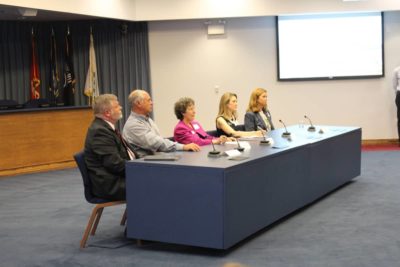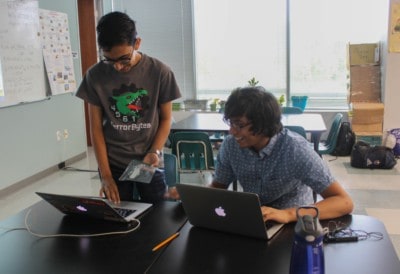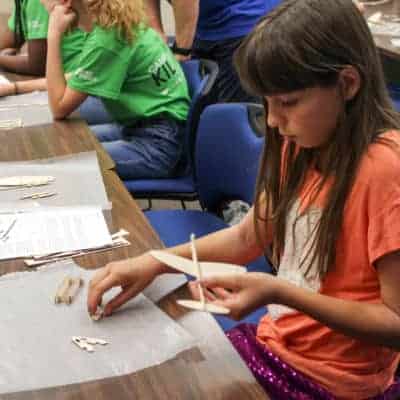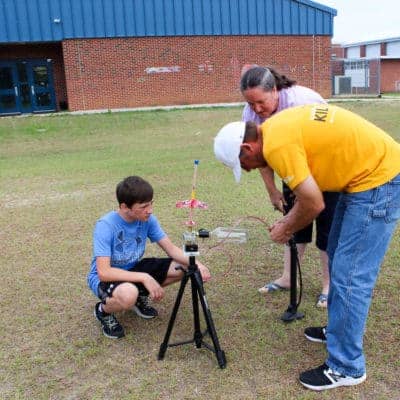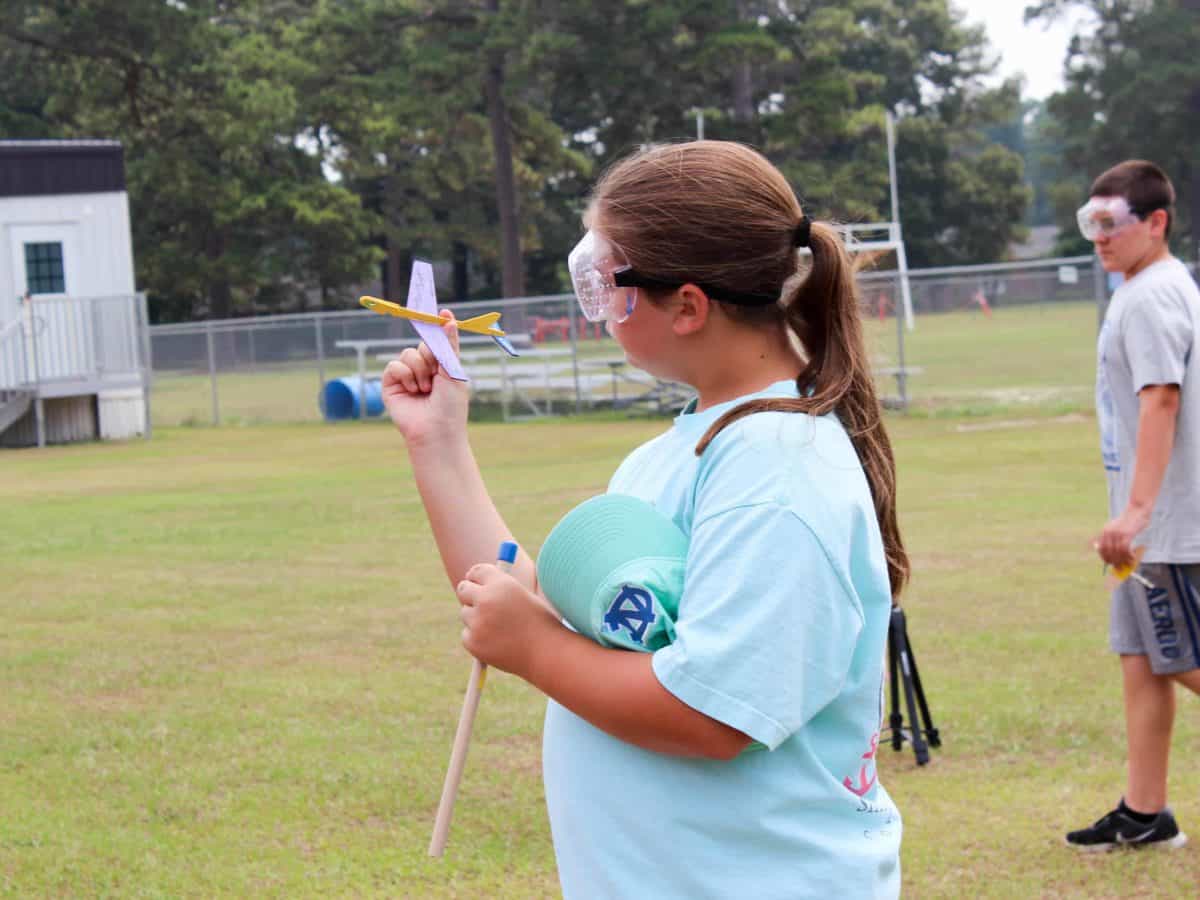
Scattered wooden parts sat on tables in a classroom at Wayne Community College in Goldsboro as middle schoolers fashioned the pieces into their very own wooden airplanes. These airplanes weren’t for passing notes across the classroom, though. They were being prepared for launch.
It was the final day of Camp Kilowatt, a hands-on STEM camp funded by the Duke Energy Foundation and spearheaded by Wayne Community College’s Applied Technologies Division. Now in its 10th year, the program partnered with Wayne County Public Schools to offer camps for an additional 120 students in six area middle schools.
“He likes hands-on, and he just loves math and science. I just thought this would be perfect for him,” said Amanda Grant, a parent whose son Avery participated in the camp at Eastern Wayne Middle School. “We’ve been on the veterinary path for awhile, but the older he gets the more towards engineering I see him going.”
Throughout the week, students tinkered with projects incorporating science, technology, engineering, and mathematics like mini wind turbines, robots, and solar cars.
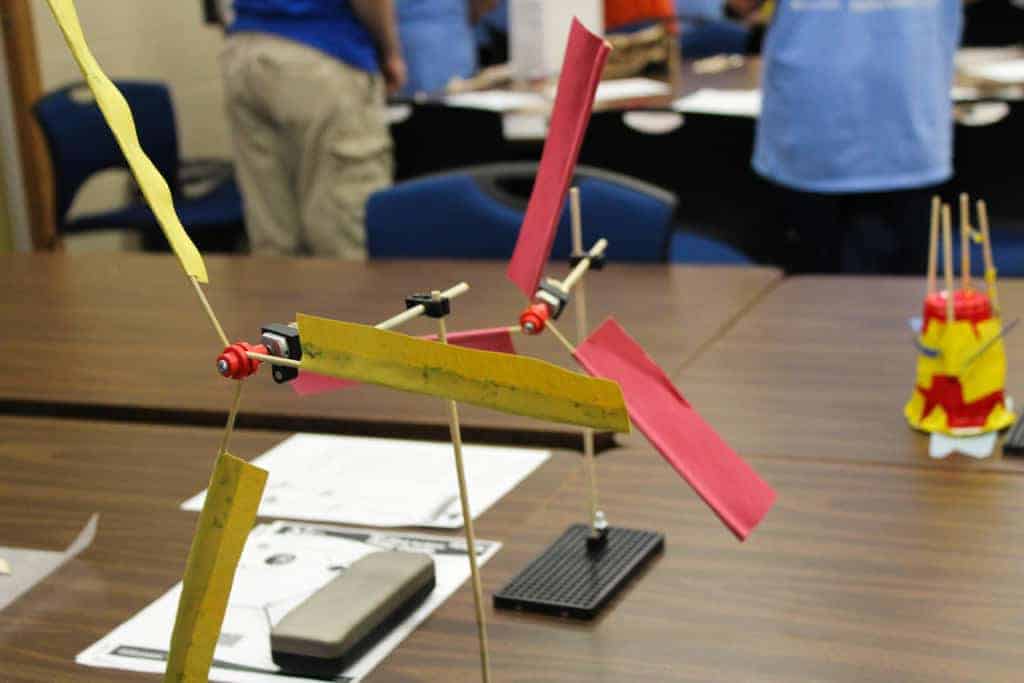
“All they gave us at the start was the motor and some gears, and then we had to find everything else,” said 11-year-old Ben Smith who participated in the camp at Wayne Community College.
“We could only use scrap pieces of wood,” added Blake Crawford, a rising eighth-grader. “It makes it more of a challenge.”
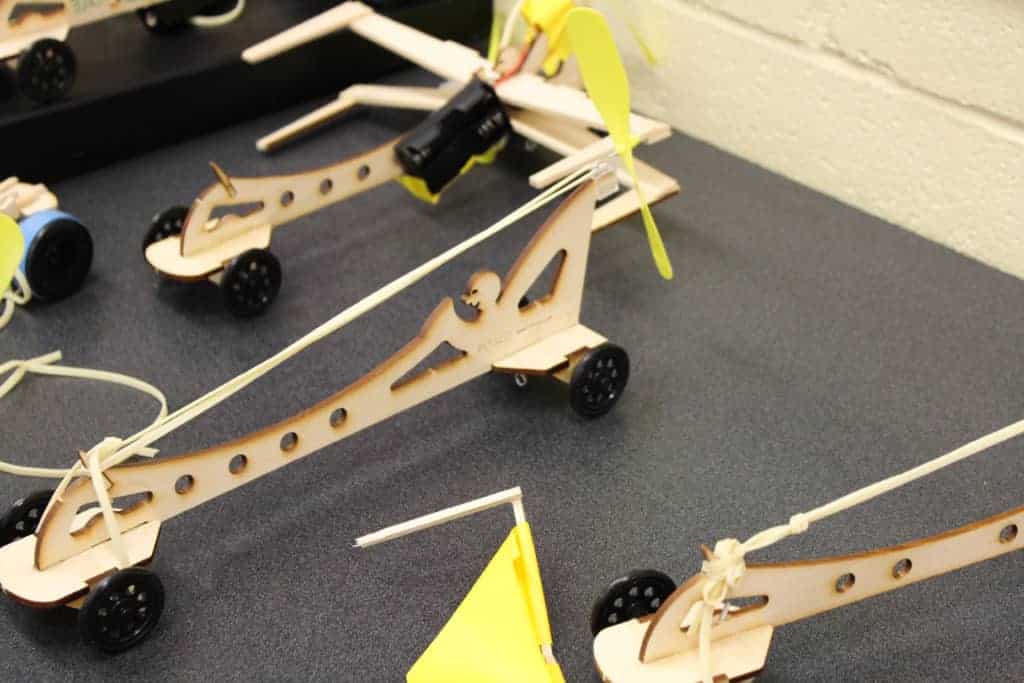
Steven Reese, mechanical engineering and technology instructor at Wayne Community College and director of Camp Kilowatt, said that students like the creativity. The evidence is clear: even when students were given the same kits and the same parts, their final results were an array of shapes, designs, and colors.
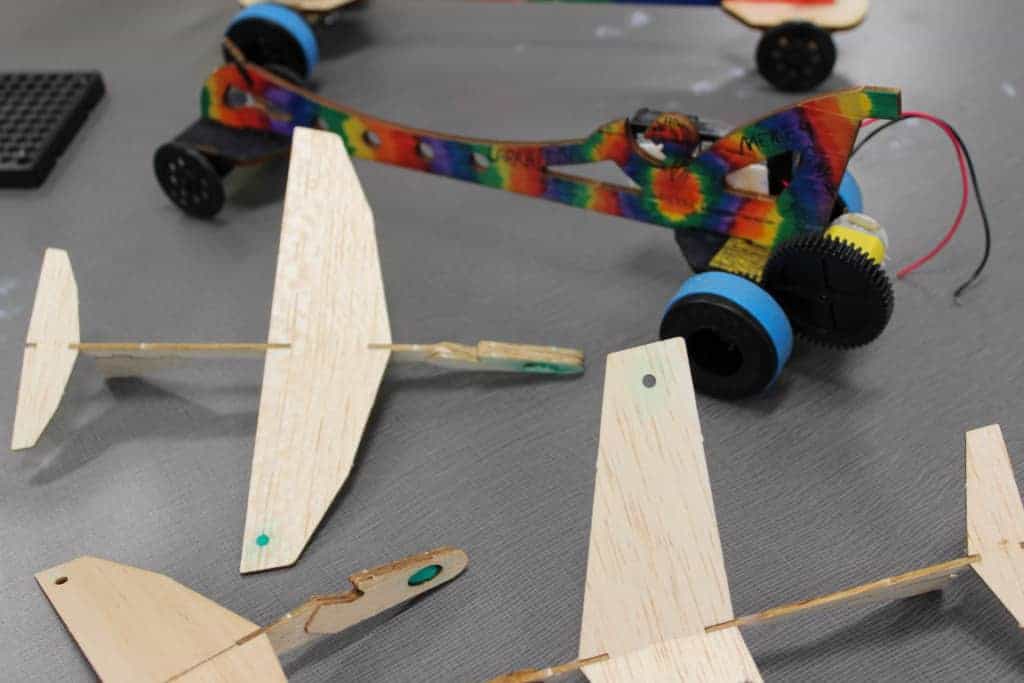
“Camp is fun,” said Reese. “They’re having fun and don’t realize they’re learning.”
For Reese, the fun is a two-way street. He said he has enjoyed directing Camp Kilowatt so much over the past four years that he doesn’t even consider it work.
Fellow camp leaders echoed a similar sentiment. “The camp’s just been a great opportunity because we are a very diverse school,” said Danielle St. Clair, a middle school teacher at Spring Creek Middle School.
“Some of the opportunities that our lower income students would not be able to afford — it’s just given them the opportunity to feel equal in that aspect with their peers. It’s put them on an even playing field,” St. Clair said.
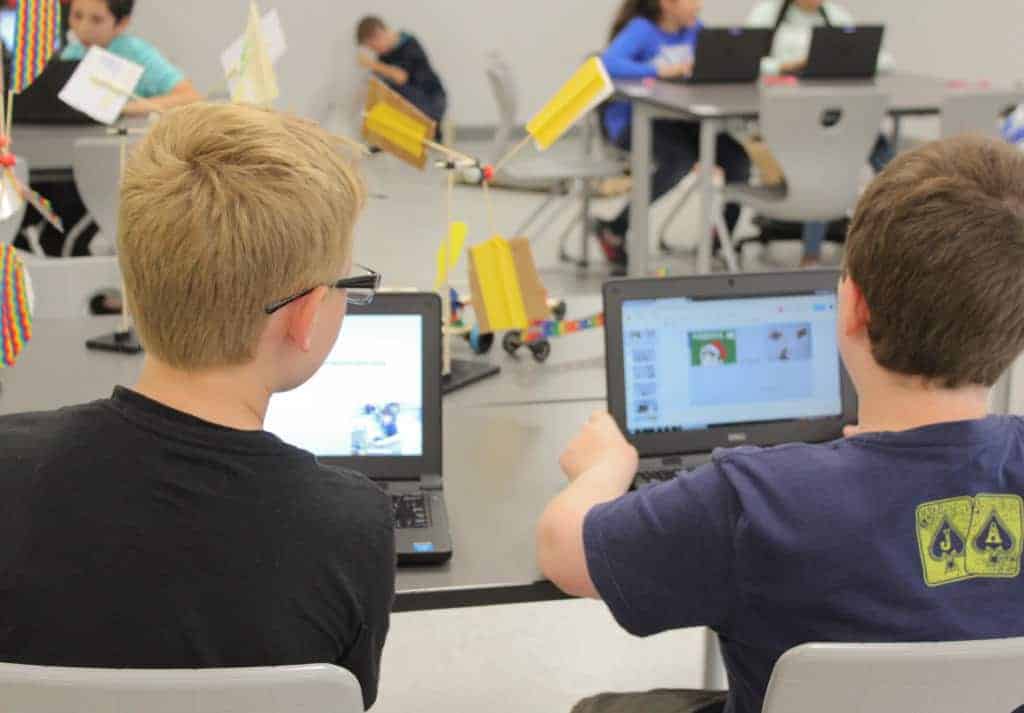
According to Reese, the program has had a lasting impact, with many of the students returning each summer. Some of his graduating students from the engineering program at Wayne Community College even found their start at Camp Kilowatt.
“We just sent their resumes out to get them a job,” said Reese.
“We want industry to come here. We want to show them that we’ve got the instructors and the technology to be able to give them the workforce that they need to come to our region,” Reese said.
“That’s number one, and we’re doing that.”
Recommended reading
